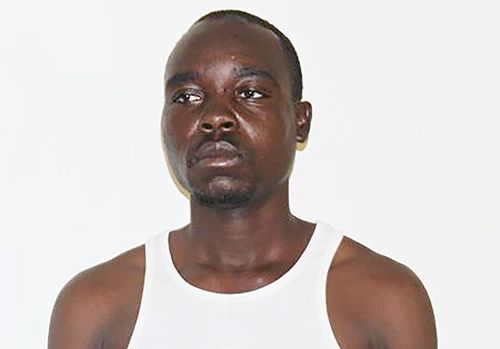An Angolan citizen accused of killing and robbing a woman at the Onandjaba settlement in the Omusati region was exonerated on all charges on Tuesday by Oshakati High Court Judge Eduard Kesslau.
Hafeni Hipangelwa (28), was accused of stabbing then-25-year-old Monica Ndatila Tuludeni Pedro, also from Angola, to death at the settlement on 10 August 2018.
It was also alleged that he robbed her cellphone. However, Judge Kesslau found that although the accused was an unimpressive witness who appeared aggressive and nervous, the State failed to prove beyond a reasonable doubt that it was him who killed and robbed the deceased.
“In this matter, the identity of the assailant was not established by direct evidence, and therefore will require from this court to draw inferences from circumstantial evidence,” the judge stated.
He further said that it is trite law that the State carries the burden of proving the allegations contained in the charges against an accused beyond a reasonable doubt, which means evidence should carry a high degree of probability. When dealing with circumstantial evidence, the judge said, the court must not consider every component in the body of evidence separately and individually in determining what weight should be accorded to it, but rather consider the cumulative effect of all the evidence. This must be done when considering whether an accused’s guilt has been proved beyond reasonable doubt.
The judge observed that the witness who was allegedly seen in the company of the deceased at the bar prior to her murder, identified the accused as the culprit. However, it was done through dock identification, which is suggestive and of lesser evidential value than for instance if an identity parade was held. “The aspect of identification should be approached with caution, as there is always the possibility of honest mistaken
identity,” the judge reasoned, adding that the reliability of the witness is questionable, considering the evidence suggesting that she was intoxicated and after the incident saw a newspaper article on the murder with a picture of the accused next to it. That in itself is a suggestive fact that can influence her mind, the judge reiterated. In addition, he said, she also frequented court appearances by the accused, which could have further cemented her opinion on his identity.
While the accused did not make the best of impressions as a witness, he does not carry the burden of proof, the judge said. Furthermore, the DNA of the accused was not found on the alleged murder weapon, neither was the DNA of the deceased found on the clothes and shoes of the accused.
When considering the version of the State against that of the accused, judge Kesslau stated, the fact that the deceased was stabbed multiple times and blood spattered everywhere, and not a single drop of the deceased’s blood landed on his clothing, makes the version presented by the State highly improbable.
In conclusion, the judge said when considering the totality of the evidence presented, he cannot find that Hipangelwa was linked beyond a reasonable doubt to the offences, and he must be given the benefit of the doubt and discharged.


